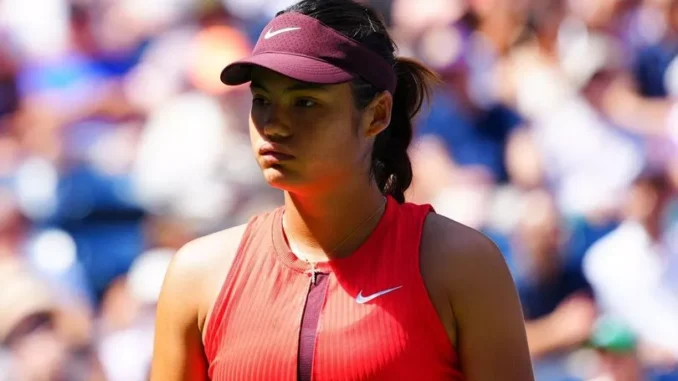
Emma Raducanu, the British tennis prodigy who stunned the world at 18 with her 2021 US Open victory, has faced a turbulent journey since her historic Grand Slam win. As a qualifier ranked outside the top 300, she blazed through the draw without dropping a set, defeating Leylah Fernandez in the final to become the first qualifier in the Open Era to claim a major. The triumph—the first by a British woman since Virginia Wade in 1977—propelled Raducanu to world No. 23, earned her the BBC Sports Personality of the Year award, and drew praise from royalty. Yet, the weight of fame, persistent injuries, and frequent coaching changes have made her climb back to the top a formidable challenge.
Now 22 and ranked No. 34 in 2025, Raducanu shows glimpses of her former brilliance amid ongoing struggles. Her year began brightly at the Australian Open, reaching the third round before falling to world No. 1 Iga Swiatek in straight sets. She gained traction on hard courts, securing her first WTA 1000 quarterfinal in Miami with upsets over Emma Navarro and Amanda Anisimova, followed by a semifinal run in Washington, where she toppled Naomi Osaka and Maria Sakkari. However, injuries continue to haunt her; foot issues forced withdrawals from Beijing and Hong Kong, reminiscent of the wrist and ankle surgeries that plummeted her ranking to No. 289 in 2023.
Her latest disappointment came at last month’s US Open, where she fell 6-1, 6-2 in the third round to ninth seed Elena Rybakina. Partnering with Francisco Roig, Rafael Nadal’s former coach, Raducanu notched her first Flushing Meadows wins since 2021 but was outmatched by Rybakina’s commanding serve and baseline power. The loss, four years after her US Open triumph, has sparked questions about what it will take for Raducanu to recapture Grand Slam glory.
Mark Petchey, her former interim coach in 2025, offered a frank yet hopeful perspective on her prospects. “Winning another Major won’t be easy,” he said, citing the dominance of power players like Rybakina, Aryna Sabalenka, and Anisimova. Raducanu’s game, built on baseline redirection—shifting the ball to disrupt opponents before they strike—must evolve to counter this aggressive era. “Emma excels at redirecting the ball from the baseline, moving it to make opponents uncomfortable,” Petchey noted. “She’ll need to keep refining that.” While she can’t change her physique to match Rybakina’s serving height, Petchey sees room for growth. “Her serve can become more precise, setting her up better over time,” he said, adding that facing these “tough” power hitters will only sharpen her resolve. Raducanu’s fearless “underdog” mentality, as she’s described it, remains a key asset.
Raducanu’s coaching journey has been as chaotic as her career. Since her US Open win under Andrew Richardson, she’s worked with Nigel Sears, Torben Beltz, Dmitry Tursunov, Sebastian Sachs, and Nick Cavaday, parting with the latter in January 2025 due to his health issues. These changes reflect her quest for consistency amid the sport’s physical and mental demands. Off the court, she’s cultivated a powerful brand with partnerships like Dior, Porsche, and Tiffany & Co., and received an MBE in 2022 for her contributions to tennis.
Looking forward, Raducanu has secured a wildcard for the Korea Open in Seoul, a vital hard-court event to regain momentum before the Asian swing. Her decision to skip the Billie Jean King Cup finals in China highlights her focus on individual recovery and performance. Despite the challenges, Petchey’s optimism resonates: the tougher the road, the sweeter a future victory will be. With her tenacity, talent, and evolving game, Raducanu’s story is far from finished, and fans eagerly await her next chapter.
Leave a Reply